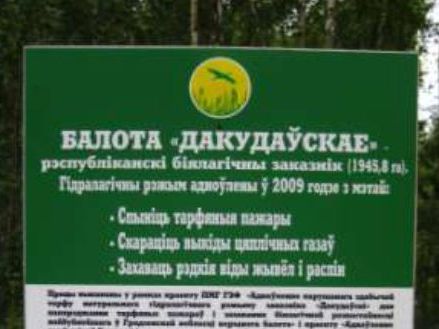Clouds above peatland
|Petra Dirscherl / pixelio.de
Peatland Rewetting In Nitrogen-Contaminated Environments (PRINCESS)
Synergies and trade-offs between biodiversity, climate, water quality and Society
- Project
- Duration
-
-
The PRINCESS project is carried out by leading research institutions throughout Europe. It categorizes and evaluates the effects of alternative land use options after peatland rewetting on key EU environmental policies: (1) as a measure to halt biodiversity loss, (2) as a nature-based solution for mitigating and adapting to climate change, and (3) as a management tool to reduce nitrate release and, thus, eutrophication. PRINCESS investigates the interaction of the two main important global change drivers and attempts to take advantage of the coupling between the carbon and nitrogen cycles to maximize benefits from rewetting peatlands.
To achieve these objectives, PRINCESS will
- focus on the peatlands which are the largest sources of GHG and affected most by nitrogen loads, i.e. temperate fens. Results, however, are relevant across drained-and-to-be-rewetted peatlands in the temperate and boreal zones,
- bring together complementary skills from six peatland-rich countries, including those with little (FI, NO, PL) and strong peatland degradation and N loading (AT, BE, DE), the latter being also front-running in rewetting and paludicultures,
- analyze crucial processes under highly controlled conditions in the laboratory and in mesocosms, test them under more realistic conditions in the field, and model and upscale them to catchment and EU scale,
- use these different scales of study to maximize internal (sound interpretation of causal effects) and external (their relevance) validity,
- apply the most advanced techniques and methods from biogeochemistry, microbial ecology, plant ecology, socioeconomic modeling on and across scales, using measurable and quantifiable indicators.
PRINCESS will provide vital scientific information for agricultural land use policies for peatlands in the EU by evaluating which land use option after rewetting complies best – under high nitrogen loads – with key policy objectives such as healthy ecosystems, climate change mitigation and adaptation, clean water, fair income to farmers, or, taken together, a greener and more sustainable Europe.
PRINCESS is a project funded by the EU 2019-2020 Joint COFUND "Biodiversity and Climate Change". The signatories collaborate in the PRINCESS project funded through the 2019-2020 BiodivERsA joint call for research proposals, under the BiodivClim ERA-Net COFUND programme.





